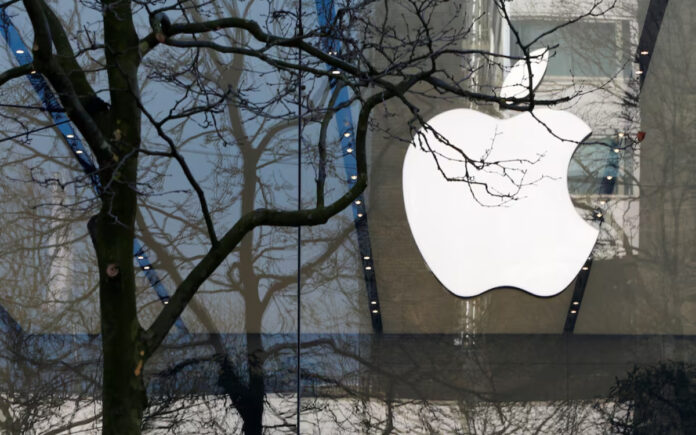Paris: The Democratic Republic of Congo has filed criminal complaints against Apple subsidiaries in France and Belgium, accusing the tech giant of using conflict minerals in its supply chain. Lawyers representing the Congolese government revealed this development to Reuters, marking a significant escalation in efforts to hold corporations accountable for human rights violations linked to mineral sourcing.
Congo is a major global supplier of tin, tantalum, and tungsten—known as 3T minerals—used extensively in computers and smartphones. However, some artisanal mines in the region are controlled by armed groups implicated in civilian massacres, mass rapes, looting, and other atrocities, according to reports from U.N. experts and human rights organizations.
Apple maintains that it does not directly source primary minerals, stating it audits its suppliers, publishes findings, and funds initiatives aimed at improving mineral traceability. In its 2023 conflict minerals filing with the U.S. Securities and Exchange Commission, Apple asserted that none of the smelters or refiners in its supply chain had financed or supported armed groups in Congo or neighboring countries.
However, international lawyers acting on behalf of Congo argue that Apple uses minerals pillaged from Congo and laundered through global supply chains, alleging the company’s complicity in crimes occurring in the region.
The Democratic Republic of Congo sued Apple in France and Belgium as it accused the firm of being complicit in the conflict minerals trade https://t.co/GZ7Yl1Iiku pic.twitter.com/5idudAa2D3
— Reuters (@Reuters) December 17, 2024
Legal Complaints Filed in France and Belgium
The complaints, submitted to the Paris prosecutor’s office and a Belgian investigating magistrate, specifically target Apple France, Apple Retail France, and Apple Retail Belgium. Allegations include covering up war crimes, laundering tainted minerals, handling stolen goods, and deceptive commercial practices aimed at misleading consumers about the cleanliness of Apple’s supply chain.
“It is clear that the Apple group, Apple France, and Apple Retail France know very well that their minerals supply chain relies on systemic wrongdoing,” the French complaint states, citing reports on the ongoing conflict in eastern Congo.
Christophe Marchand, a Belgian lawyer representing Congo, emphasized Belgium’s moral responsibility to act due to its colonial history in Congo under King Leopold II. “It is incumbent on Belgium to help Congo in its effort to use judicial means to end the pillaging,” Marchand said.
The complaints, filed by lawyers on behalf of Congo’s justice minister, aim not only at local subsidiaries but at the Apple group as a whole. France and Belgium were chosen for their strong emphasis on corporate accountability, and judicial authorities in both countries will determine whether to pursue investigations or criminal charges.
Broader Context of Mineral-Linked Violence
Congo’s mineral-rich eastern regions have endured decades of violence fueled by competition over resources. Armed groups, sometimes backed by neighboring Rwanda, sustain their operations through proceeds from mineral exports, which are often smuggled across borders. Millions of civilians have died or been displaced due to the ongoing conflict.
U.N. experts and human rights organizations have repeatedly pointed to Rwanda’s involvement in the illicit mineral trade. However, Rwanda denies benefiting from these operations.
Congo’s complaint also highlights the role of ITSCI, a metals industry-funded monitoring scheme designed to help companies perform due diligence on 3T mineral sourcing from Congo, Rwanda, Burundi, and Uganda. Lawyers for Congo argue that ITSCI has been discredited, citing the Responsible Minerals Initiative (RMI)—an organization Apple is a member of—which removed ITSCI from its list of approved traceability schemes in 2022.
The RMI extended ITSCI’s suspension until at least 2026, citing its failure to provide field reports from high-risk mining sites or respond to escalating violence in Congo’s North Kivu province, a key 3T mineral hub.
Also Read | Ukraine Claims Responsibility for Killing Russian Chemical Weapons Chief in Moscow
ITSCI, however, defended its work, criticizing the RMI’s decision and rejecting allegations made in a 2022 Global Witness report titled “The ITSCI Laundromat”. The report accused ITSCI of facilitating the false labeling of minerals from conflict zones as originating from peaceful areas.
Apple referenced ITSCI multiple times in its 2023 conflict minerals report, while also noting its continued leadership role within the RMI. However, it did not mention the RMI’s suspension of ITSCI.
A Call for Accountability
In a statement included in the French complaint, the U.S. State Department underscored concerns over the role of illicit mineral trade in financing conflict in Congo. The department emphasized that flaws in traceability schemes have not received the necessary attention to drive meaningful change.
Robert Amsterdam, a U.S.-based lawyer for Congo, described the legal actions as a landmark moment, marking the first criminal complaints filed by the Congolese state against a major tech company. Amsterdam called the move a “first salvo” in a broader effort to hold corporations accountable.



